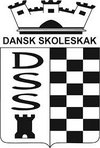School Chess during Math Lessons
School Chess during Math Lessons
Chess at school improves Danish students’ mathematics skills significantly. The pilot project ‘Skoleskak i matematikundervisningen’ (school-chess in the mathematics lessons) shows that. The pilot scheme examine whether the mathematics competencies of the Danish students can be improved by replacing one weekly mathematic lesson with a chess lesson.
Time period: | 2013 - 2015. |
Target group: | Students in 1., 2. and 3. grade. |
Number of participants: | 482 students divided between five public schools in Aarhus. |
Intervention: | In a period of less than a school year the students have had replaced one out of four (45 minutes) of their weakly mathematics lessons with chess lessons. The lessons were based on a chess book – published by Dansk Skoleskak.At all the schools the same mathematic teacher, who plays chess daily, has been doing the lessons. The students have been instructed in the freedom of movement of the chessmen and the students have been asked a lot of practical mathematic inspired chess game assignments. |
Research: | The schools have divided the participating classes into a chess group and into a control group. The chess group received the above-mentioned effort, while the control group got the usual four lessons in mathematics. Between the two groups, there were no measurable differences in the students’ mathematic skills before the program started and nor in their parents’ level of education or income. In the start of and right after the test the students in both groups have been taken a mathematic test, testing geometry, pattern recognition, number processing and basic problem solving. By comparing the test results for students who have received chess lessons with students who have had the normal lessons, it has been possible, after controlling for the students’ background, to read the effects of the chess game on the students’ mathematic skills. |
Partners: | Dansk Skoleskak and Aarhus Kommune/Municipality. |
Results: | The lessons in chess significantly improve the students’ mathematic competencies. Hence, the following mathematic test has shown that students are up to 0,18 standard deviation better – an effect, which corresponds to a third school year extra mathematic lessons in 3. grade. Simultaneously, the size of the effect can be seen as substantial, when you bear in mind that the control group of the test in reality have had one more standard mathematic lesson a week. Additionally, a further examination shows that the chess lessons improve the students in the following mathematic test – regardless of the students’ mathematic competencies before the test. The weekly chess lesson particularly benefit the boys, who are usually considered more difficult to motivate in school. On the other hand, the chess lesson does not seem to have any specific effect on first – and second-generation immigrants. Furthermore, the chess lessons only have a smaller impact on students who have a mother without a qualifying education. |
Publications
Michael Rosholm, Mai Bjørnskov Mikkelsen og Kamilla Gumede (2017): Your move: The effect of chess on mathematics test scores

